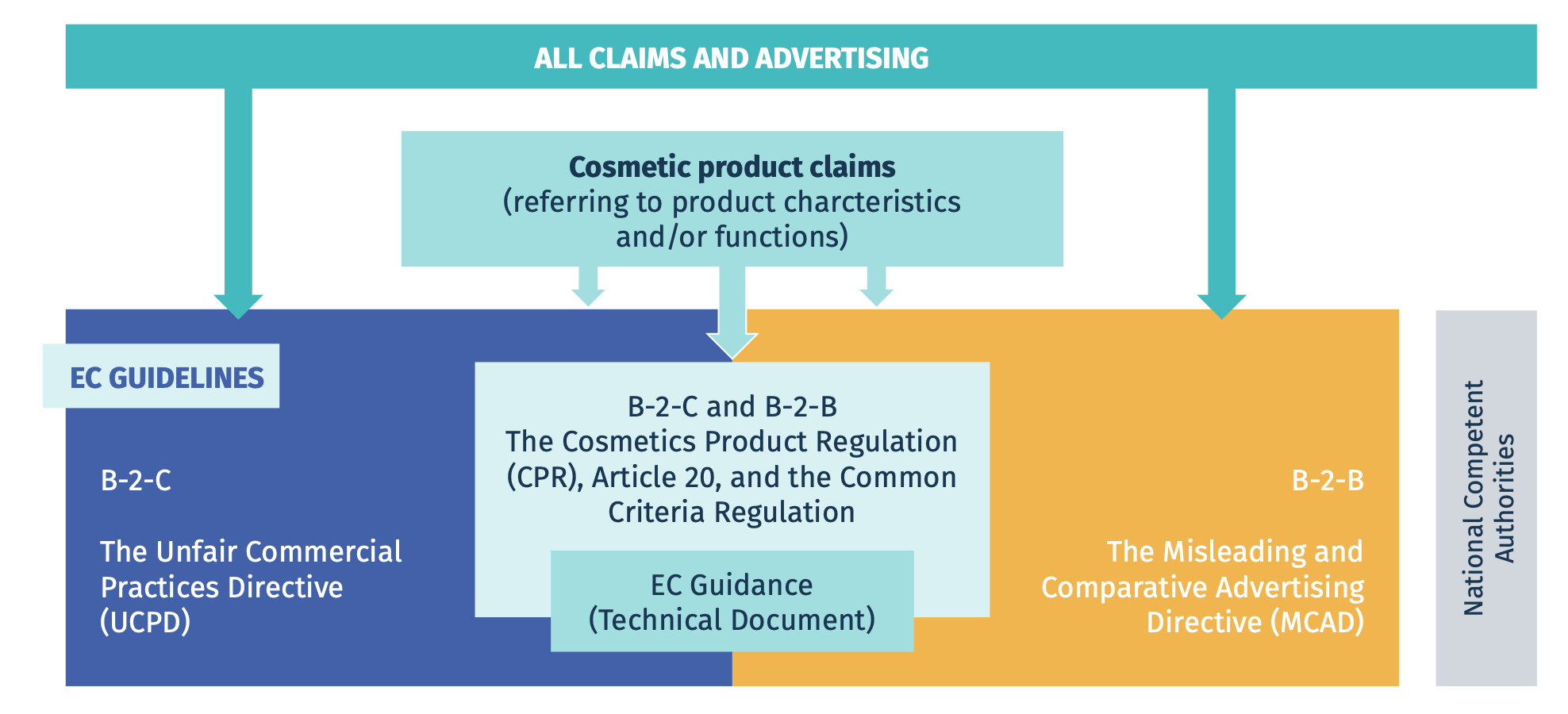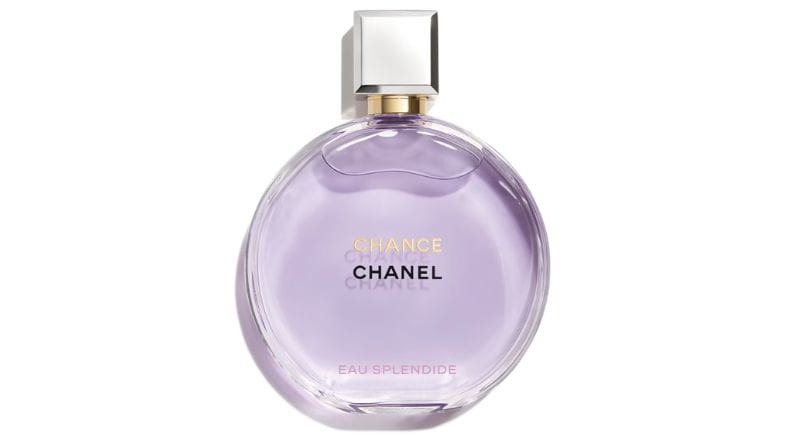
The French regulatory framework for green claims
Protecting consumers against greenwashing is a priority for European and French legislators. Although European authorities are working on a single framework, currently there is not yet a specific regulation for green claims in the European Union. That’s why each Member State can have its own specificities. In France, two major laws regulate green claims to date, the “AGEC law” and the “Climate and Resilience Law”. With these laws, France is driving forward the legislative framework for environmental claims.
The European framework
Within the European Union, the legal framework for claims is based on two directives which are currently under review: Directive 2005/29/EC on Unfair Commercial Practices (UCPD), and Directive 2006/114/EC on Misleading and Comparative Advertising (MCAD). These directives cover claims across different sectors.
For cosmetic products, all claims must also comply with Article 20 of the Cosmetic Products Regulation No 1223/2009, and with the European Regulation No 655/2013 which defines six common criteria: legal compliance, truthfulness, evidential support, honesty, and fairness.

According to the Directive 2005/29/EC, “environmental claims” or “green claims” refer to the practice of suggesting or otherwise creating the impression that a good or service is environmentally friendly or is less damaging to the environment than competing goods or services. This concerns all types of statements and information but also logos, symbols, and visuals. This type of claim can be present on the product label and all communication media relating to the product (advertising, publications, website, social networks, brochures,...).
When such claims are not true or cannot be verified, this practice is called “greenwashing”.
The French AGEC law
The law No 2020-105 relating to the fight against waste and the circular economy (AGEC) was published on 10th February 2020. The purpose of this law is to encourage a circular economic model based on eco-design of products, responsible consumption, and greater recycling of products and waste. This law regulates the use of green claims that are too vague.
According to Article 13, the terms “biodegradable”, “environmentally friendly” or any other equivalent terms are prohibited on products and packaging, since 1st January 2022. These claims are prohibited not only regarding the packaging but also the entire product, including the formula and its ingredients.
The term “compostable” is banned for plastic products and packaging that can only be composted in an industrial unit. In addition, compostable plastic products and packaging (in domestic or industrial composting) must be labelled “Do not throw into the environment”.
Concerning the term “recycled”, the law states that the percentage of recycled material actually incorporated shall be specified with the mention "packaging containing at least [%] recycled content".
The French Climate and Resilience Law
The law on combating climate change and strengthening resilience to its effects was published on 24th August 2021. This law is drawn from the work of the Citizen’s Climate Convention which brought together 150 randomly selected citizens to prepare draft laws on all issues relating to ways to prevent climate change.
This law reinforces the legal framework against greenwashing and corresponding sanctions. It regulates in particular the use of carbon neutrality claims as “carbon neutral”, “zero carbon”, “with zero carbon footprint”, “climate neutral”, “fully offset”, “100% offset” or any other equivalent terms. Such claims can be considered misleading because they suggest to consumers that the product has no environmental impact.
To use carbon neutrality claims, it is necessary to produce a report on the greenhouse gas emissions of the product or service concerned covering its entire lifecycle. This report must be updated every year. It is also needed to publish a summary report available to consumers (via a website, a QR code or an application). The evidence to be provided is defined by the Decree No. 2022-539 relating to carbon offsetting and claims of carbon neutrality in advertising. It applies to claims on product packaging and in advertising (printed advertisements, press publications, tv, cinema, radio, and digital…).
These measures entered into force on 1st January 2023. In case of non-compliance, the advertiser may have to pay a fine of 20,000 euros (for a natural person) or 100,000 euros (for a legal entity) which can be increased up to the total amount of the expenses devoted to the advertising campaign.
Controls and sanctions in France
In France, cosmetics claims are controlled by a governmental authority, the DGCCRF (Directorate General for Competition, Consumer Affairs and Fraud Control), and by an advertising self-regulatory organization, the ARPP (Professional Advertising Regulatory Authority).
The DGCCRF is the main authority competent for the enforcement of the UCP Directive in France. In 2023, the DGCCRF will strengthen controls on green claims for cosmetic products. Forbidden claims such as "biodegradable" and "environmentally friendly" in addition to similar claims will particularly be focused on.
The ARPP’s role is to regulate advertising in such a way that it respects the profession’s ethical, commercial competition, and good practice codes, particularly through its recommendations. The ARPP is not permitted to sanction the violation of French advertising law, however, its decisions are made public on its website ("name and shame" practice).
Misleading commercial practices are sanctioned by up to two years imprisonment and a fine up to 300,000 euros (for a natural person) or 1.5 million euros (for a legal entity). This amount can be increased to 10% of the annual turnover or to 50 % of the expenditure incurred in carrying out the advertising or practice. In the case of greenwashing, the amount of the fine for misleading environmental claims can now be up to 80% of the expenditure.
Main reference guides
In order to avoid greenwashing, environmental claims must be truthful, clear, unambiguous, and substantiated with solid scientific evidence.
Reference guides exist to help brands to communicate while complying with the law:
- The practical guide of environmental claims for professionals and consumers, published by the French National Consumer Council, in association with the French Ministry of Economy and Finance
- The National Packaging Council (CNE) Guide about the environmental claims related to the product's packaging
- The ARPP’s recommendations “Cosmetic Products” and “Sustainable Development”
- The ISO 14021:2016 norm about “Environmental labels and declarations — Self-declared environmental claims”
It should be noted that a new version of the official guide on environmental claims, currently being drawn up by a working group of the National Consumer Council and to be published by the DGCCRF. This new guide may provide elements concerning the terms considered equivalent to "environmentally friendly" and "biodegradable".
Focus on the European Ecolabel
The Ecolabel is the official European voluntary label for sustainably designed products. Established in 1992 and easily recognizable by all European consumers, the Ecolabel certifies products with an independently-verified low environmental impact.
Previously limited to “rinse-off cosmetic products”, the Ecolabel can now be used for all cosmetic categories, including skincare and make-up. It allows to identify products that have the least impact on the environment compared to similar products while guaranteeing identical performance.
The EU Ecolabel guarantees especially:
- Low toxicity to aquatic organisms
- Biodegradable ingredients
- Restricted use of hazardous substances
- Reduced and easy-to-recycle packaging
- Renewable ingredients of sustainable origin
- Good performance
The EU Ecolabel criteria for cosmetic products are specified in Commission Decision 2021/1870. The Ecolabel covers the main environmental impacts of a product (at the level of sourcing, manufacturing, use, and end of life), determined on scientific bases developed with the European Commission.
The Regulation No 66/2010 on the EU Ecolabel authorizes to display an optional logo including mentions such as “Biodegradable” or “Better for the environment”. As previously explained, the French AGEC law bans the use of these claims on products. However, a European Regulation takes precedence over French law by definition. That’s why, it is still allowed to use the logo below on product packaging.

For cosmetic products, the optional label shall contain the following information:
- Fulfils strict requirements on harmful substances
- Tested performance
- Less packaging waste
Stay tuned: the Green Claims Directive
On 22nd March 2023, the European Commission published the proposal for a new directive on substantiation and communication of explicit environmental claims (commonly known as “Green Claims Directive”). The key objective is to update Union consumer law to ensure that consumers are protected and to empower them to contribute actively to the green transition. This directive defines common criteria against greenwashing and misleading environmental claims.
Concretely, the main propositions of this text are:
- strict rules on the type of evidence to be provided,
- a new requirement that claims have to be checked by an independent and accredited verifier who issues a compliance certificate,
- an obligation to provide information to consumers on substantiation, either directly on the product or via a weblink or QR code.
Moreover, the proposal aspires to stop the proliferation of environmental labels and to ensure the transparency and robustness of certification schemes. Environmental labels must be transparent, third-party verified, and regularly reviewed.
In order to avoid a disproportionate impact, smaller enterprises (fewer than 10 employees and less than 2 million euros turnover) will be exempted from certain obligations.
The proposal is open for comment until 19th May 2023. After this consultation, the text will have to be submitted to the European Parliament and the Council for approval before being adopted. Its publication is expected for the end of 2024. Then, once published, the Directive will have to be transposed into the national laws of each member state, within 18 months.
Environmental claims are more and more regulated in order to combat greenwashing. French laws already include most of its European provisions, however, new adjustments will be needed, and this will result in an even bigger challenge for marketers to make green claims.

